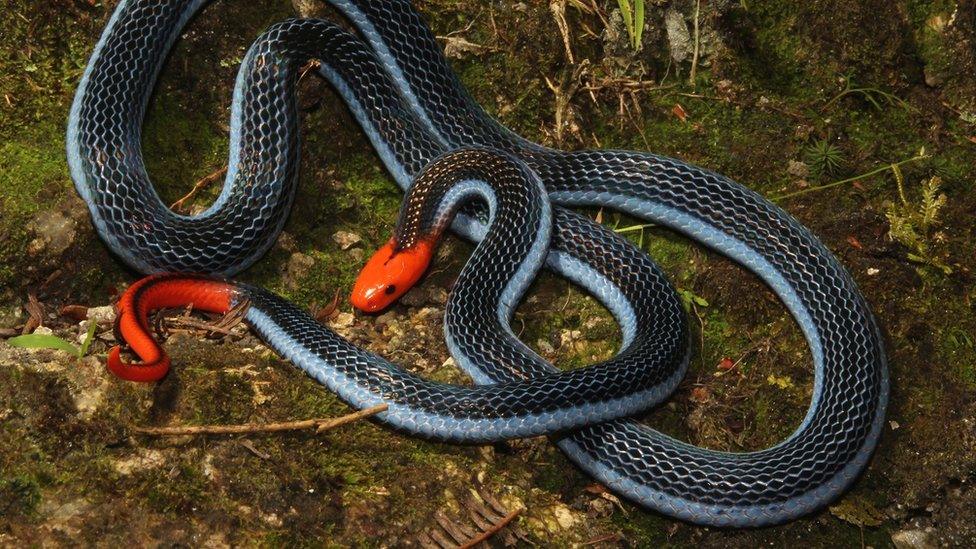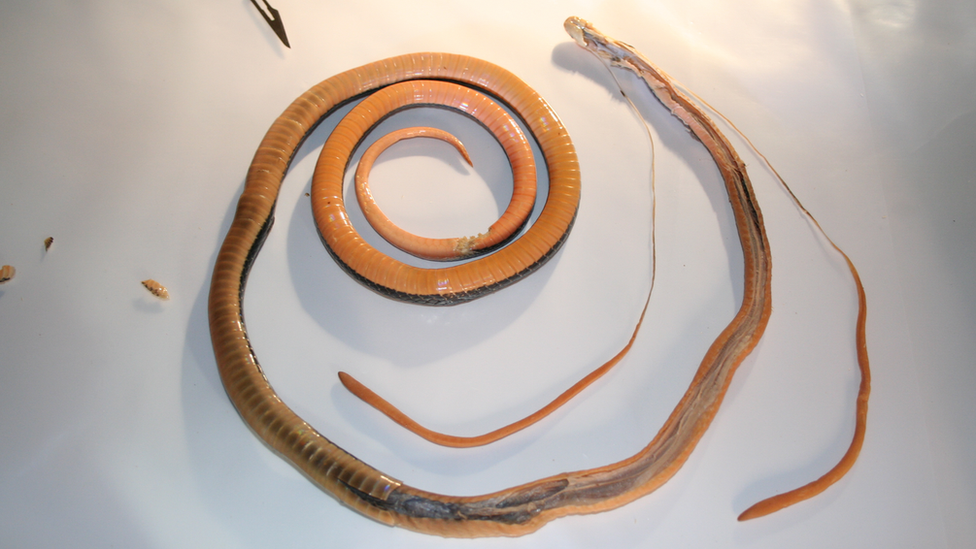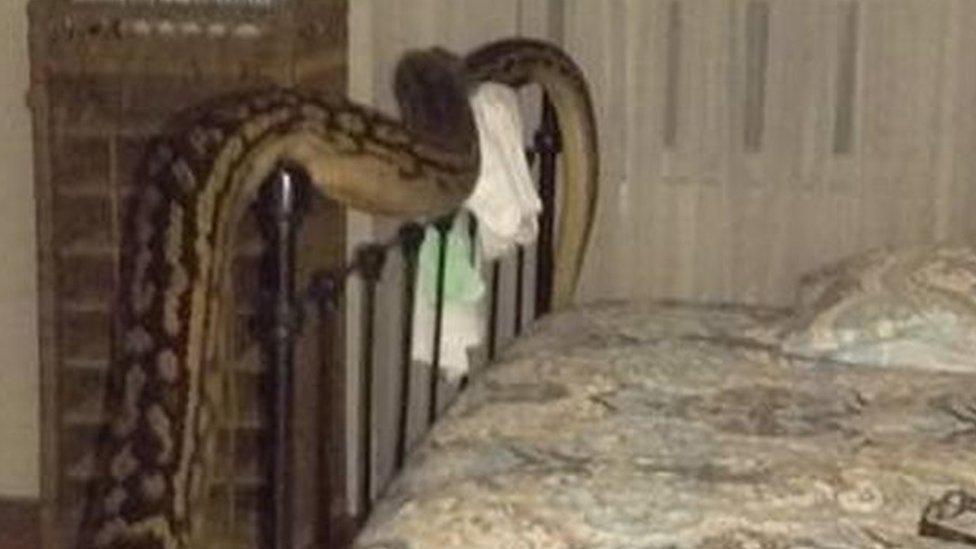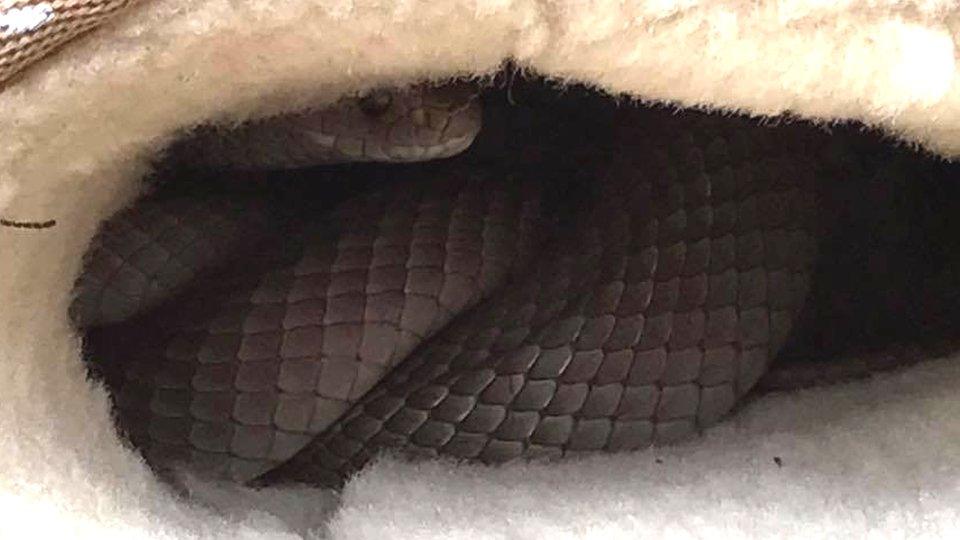The venom of one of world's deadliest snakes could relieve pain, say scientists
- Published

Dubbed the 'killer of killers', the snake's vibrant blue body and red head is a sight to behold
A snake with the largest venom glands in the world could hold the answer to pain relief, scientists have found.
Dubbed the "killer of killers", the long-glanded blue coral snake is known to prey on the likes of king cobras.
Venom from the 2m-long (6ft 6in) snake native to South East Asia acts "almost immediately" and causes prey to spasm.
New research published in the journal Toxin, external found it targets receptors which are critical to pain in humans and could be used as a method of treatment.


"Most snakes have a slow-acting venom that works like a powerful sedative. You get sleepy, slow, before you die," said researcher Dr Bryan Fry from the University of Queensland.
"This snake's venom, however, works almost immediately because it usually preys on very dangerous animals that need to be quickly killed before they can retaliate. It's the killer of killers."
Turning into medicine?
Cone snails and scorpions are some of a handful of invertebrates whose venom has been studied for its medical use. However, as a vertebrate, the snake is evolutionarily closer to humans, and so a medicine developed from its venom could potentially be more effective, says Dr Fry.
"The venom targets our sodium channels, which are central to our transmission of pain. We could potentially turn this into something that could help relieve pain, and which might work better on us."

The snake's venom glands extend outwards and can be as long as one quarter of its body's length
The snake's venom glands extend to up to one-quarter of its body length.
"It's got freaky venom glands, the longest of any in the world, but it's so beautiful. It's easily my favourite species of snake," said Dr Fry.
It is the first vertebrate in the world known to have venom acting this way, according to Dr Fry.
But the snake is rare: more than 80% of its habitat has been destroyed.
"They're really rare. I've only ever seen two of them in the wild," he told the BBC.
"Much of their homes have been cleared to make way for things such as palm plantations in South East Asia. Who knows what else was in that forest that could've potentially saved lives?"
Dr Fry and his team, which comprises researchers from countries including China, the US and Singapore, is set to study relatives to the snake in Singapore.
"We're trying to see if there are any relatives of the long-glanded blue coral snake that would possess any different properties. Some people say the only good snake is a dead snake but we're trying to do the opposite here."
Reporting by the BBC's Yvette Tan.
- Published22 June 2016

- Published23 September 2016
